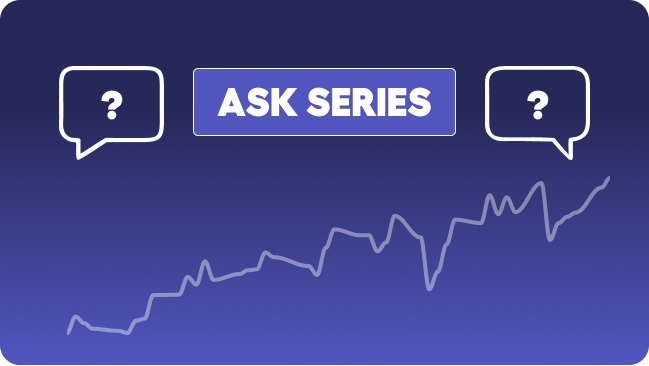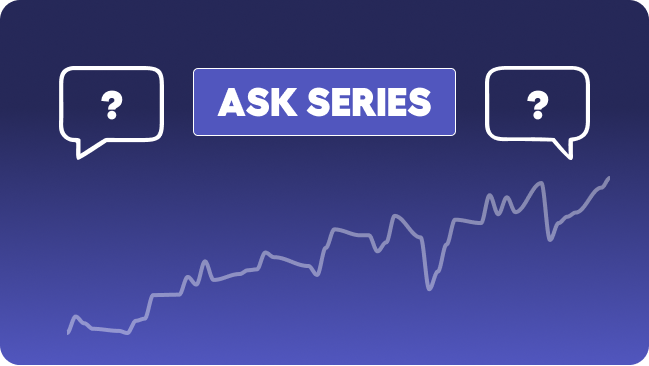

Article
— management
Ask: Should I Pay Off My Mortgage Early or Invest?
Welcome to our Ask series, where we tackle your questions about personal finance and investing. Want to see your question answered here? Reach out to us on social media and we’ll try to address it in a future column.
If I have extra cash, should I use it to pay off my mortgage early or invest?
If you have cash to spare and are currently paying a mortgage on your home, you might wonder if you should use that extra cash to pay off your mortgage early (also known as prepaying your mortgage) or use it to add to your investments, like an Automated Investing Account at Itrust, instead. There’s no one-size-fits-all answer, but in this post, we’ll provide a framework for thinking about the decision.
At Itrust, we believe investing is key to building long-term wealth, but there can also be benefits to paying off your mortgage sooner. For the purposes of this post, we’ll assume you have a 30-year fixed-rate mortgage. Here are some factors to consider as you decide between paying off your mortgage early and investing.
Make sure you really have extra cash
Cash plays an important role in our financial lives. It’s true that having too much cash can work against your long-term financial health, but it’s important not to overcorrect: Having insufficient cash can be very stressful. Before you decide to pay off your mortgage early or invest, it pays to make sure you really have extra cash. As a rule of thumb, we think it makes sense to hold enough cash to cover the following:
- A good emergency fund, with three to six months’ worth of expenses
- Any significant known expenses within the next year. This could include things like an upcoming vacation, your wedding, or a large home repair. (An exception: You could also consider keeping money for large near-term expenses in an investment account with very little risk to your principal, like Itrust’s Automated Bond Ladder.)
- Your regular monthly expenses that you cover out of each paycheck, like groceries and childcare
If you don’t have enough cash to cover these items without dipping into your savings, consider holding off on either putting more cash in the market or paying off your mortgage early.
Pay off your highest interest debt first
Once you’ve confirmed you do have extra cash, you should take stock of all of your debt—not just your mortgage. Some debt is far more expensive than other debt. You can tell how expensive your debt is by looking at the interest rate you’re paying on it: Debt with a higher interest rate is more expensive to you. Because of this, it usually makes sense to pay off your highest interest debt first.
Let’s imagine you have $10,000 in credit card debt and the APR (annual percentage rate) on that debt is 24.62% consistent with the national average as of June 5, 2024. Let’s also imagine you have a 30-year fixed-rate mortgage with an interest rate of 7.40%, consistent with the national average as of June 21, 2024. If you received a $10,000 bonus at work, it would make sense to pay off your credit card debt first because that debt has a significantly higher interest rate than your mortgage, and it’s probably much higher than your expected returns from investing, too.
Take a closer look at your mortgage interest rate
If you’ve already handled your high-interest debt, then it makes sense to compare the interest rate on your mortgage to your expected returns from investing. Your expected returns can be difficult to predict, but you can use tools like Itrust’s historical performance page to make a more informed guess. When you pay off debt with a known interest rate, you’re essentially getting a known rate of return on your money because you know exactly how much you’ll save in interest. Let’s say the interest rate on your mortgage is 2% (lucky you!) and your long-term expected return from investing is 5%. You could make the case for investing your extra cash, because your interest savings from paying off your loan are likely to be lower than your investment returns, even after taxes. Keep in mind, however, that “expected returns” are just that—expected, not guaranteed.
On the other hand, if your mortgage interest rate is 7% and your expected return from investing is still 5%, you might want to take the opposite approach and pre-pay your mortgage. That’s because the amount you would save in interest is higher than what you’d expect to earn on that money if you invested it.
But what about the mortgage interest tax deduction? If you itemize your tax deductions, you can deduct the interest paid on up to $750,000 of mortgage debt for homes purchased after December 16, 2017 on your tax return. This means if you prepay your mortgage, you could lose some or all of this deduction. In general, we don’t think this should be the driving force behind your decision, but it is important to be aware of the tax implications of mortgage prepayment. Here’s a very simplified example to help you think this through: If you have a mortgage interest rate of 7%, you qualify to deduct your interest, and your tax rate is 30%, then the after-tax rate on your mortgage would be 4.9% (or 7% x (1 – 30%)). Just remember that in order to get an apples-to-apples comparison, you’ll want to compare this after-tax interest rate to your expected after-tax investment return, which can be even more difficult to accurately predict than pre-tax returns.
Prepayment, recasting, or refinancing? Consider your options
Paying off debt like a mortgage early can be psychologically rewarding, but prepayment isn’t your only option. Some people incorrectly assume that prepaying their mortgage will automatically lower their monthly payments going forward, but this generally isn’t the case. However, there are alternatives to prepayment that do have the potential to lower your monthly payments. Here’s a quick overview of various options and how they compare:
- Mortgage prepayment: Paying extra money towards the principal (or loan amount) of your mortgage. Prepayment allows you to pay off your mortgage faster and save money on interest, but doesn’t change the amount of your monthly payments. Occasionally, you may pay a prepayment penalty for paying your mortgage off early (more on that below).
- Mortgage recasting: Paying extra money towards the principal of your mortgage, and then recalculating your monthly payments. Recasting lowers your monthly payments and saves you money on interest, but you won’t pay off your mortgage any earlier. You may also need to pay a fee of a few hundred dollars to recast.
- Mortgage refinancing: Taking out a new mortgage, usually at a lower interest rate, with the goal of lowering your monthly payments and the total amount you’ll pay in interest. Refinancing can change the date you’ll pay off your mortgage in either direction, depending on the terms of the new loan. Refinancing can come with significant fees—potentially two to five percent of the new loan amount.
Consider your amortization schedule
Most of the time (assuming you have relatively standard loan terms, and not a less common arrangement like an interest-only mortgage or a balloon mortgage), your mortgage payment includes a mix of principal and interest—and over time, that mix changes. Mortgage payments are mostly interest when you first take one out, and they gradually include more principal as more time goes by and you build more equity in your home.
If your mortgage payments still include a lot of interest, there’s likely more benefit to prepaying, recasting, or refinancing. On the other hand, if you’re paying mostly principal, there’s less benefit to prepaying, recasting, or refinancing and you are more likely to be better off investing your extra cash instead.
Check your mortgage’s prepayment terms
Prepayment penalties, or fees for paying off your mortgage early, aren’t very common. But if you’re considering prepaying your mortgage, you should make sure that your lender won’t penalize you for it.
Why would lenders do this? When you prepay your loan principal, you are ultimately reducing the amount of interest you’ll pay your lender. Prepayment penalties are a way for lenders to recoup some of that lost interest, and these penalties vary in both amount and structure—you could owe a flat fee or a percentage of the loan balance, for example. Read the details of your mortgage carefully and don’t be afraid to ask your lender to clarify if you’re unsure about your prepayment terms. If your mortgage does include a prepayment penalty, make sure you are cognizant of this cost—it could tip the scales towards investing instead.
Key takeaways
To recap, here’s what we suggest keeping in mind as you consider the tradeoffs involved in prepaying your mortgage or investing.
- Before you pay off your mortgage early or invest, make sure you actually have enough cash on hand.
- Take stock of all of your debt and consider paying off your highest interest debt first.
- Compare the interest rate on your mortgage to your expected return from investing.
- Prepayment isn’t your only option. Look into recasting and refinancing if your goal is to lower your monthly payments.
- You’re more likely to benefit from mortgage prepayment if you took out your mortgage relatively recently and your payments still contain a lot of interest.
- Don’t forget to check your mortgage’s prepayment terms.
If you ultimately decide it makes sense to invest your savings instead of prepaying your mortgage, we suggest investing in a globally diversified portfolio of low-cost index funds like Itrust’s Classic portfolio. We’ll help you maximize your risk-adjusted returns and minimize your taxes while our software handles all of the busy work like trading and rebalancing for you.
We hope this helps!


